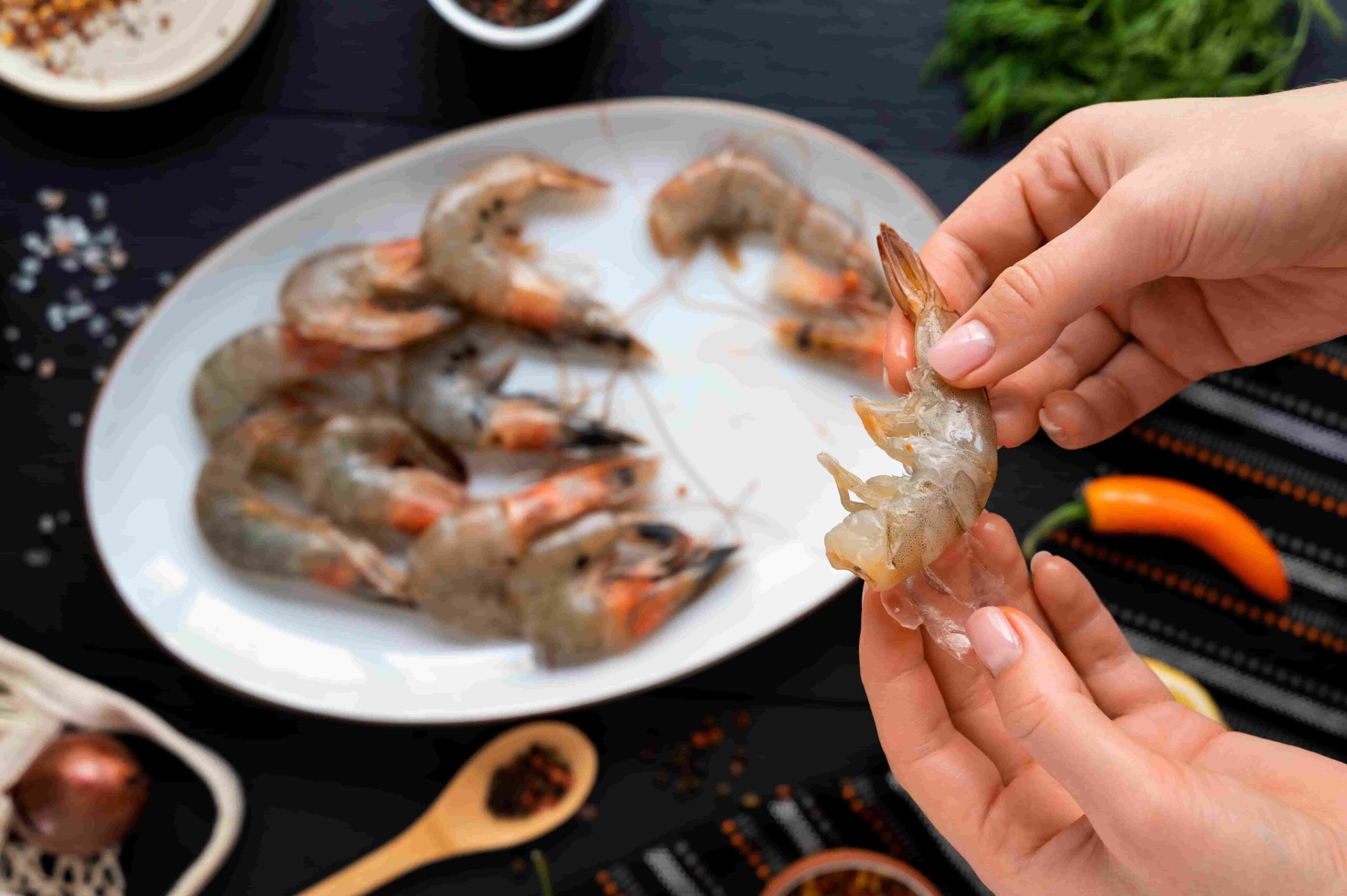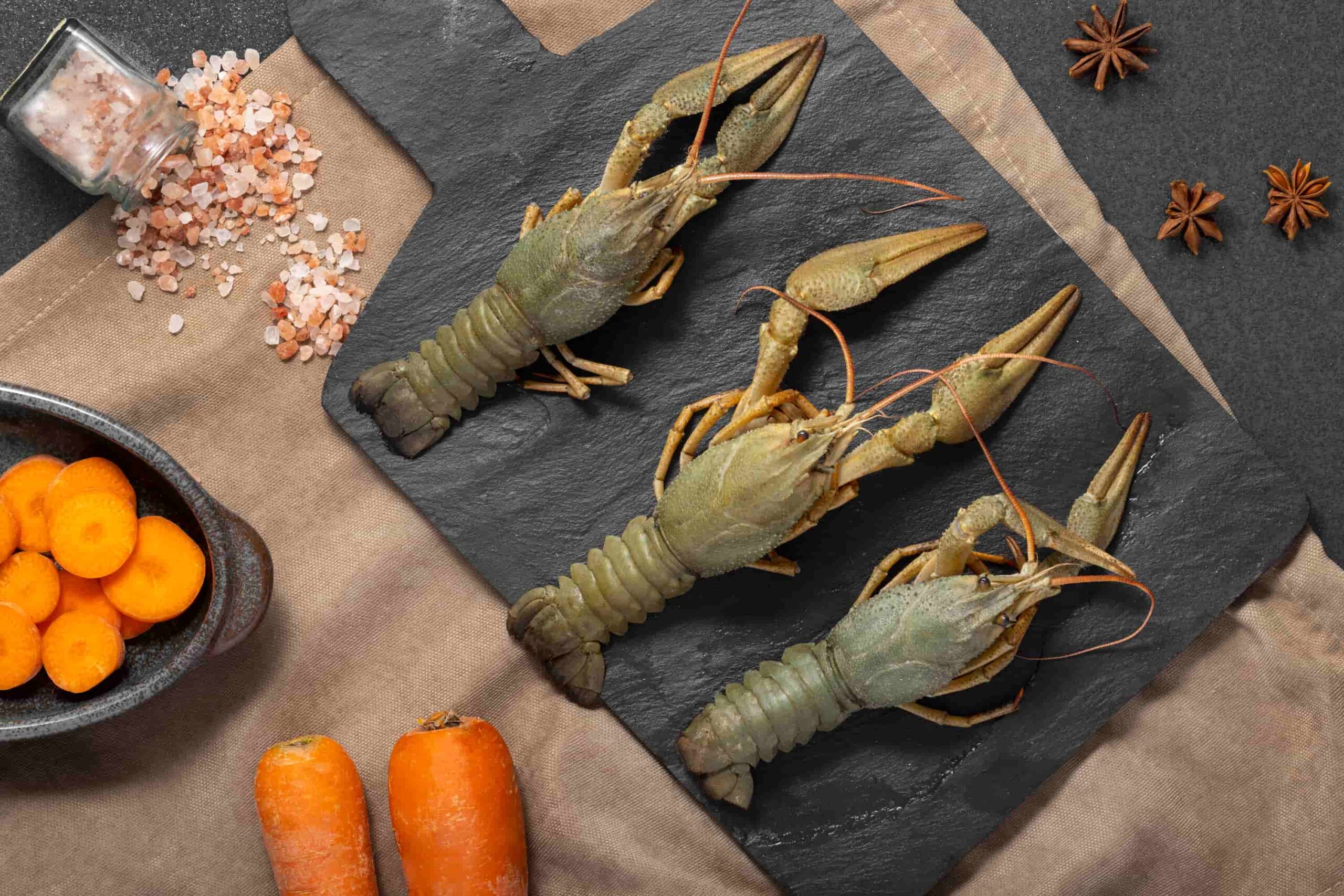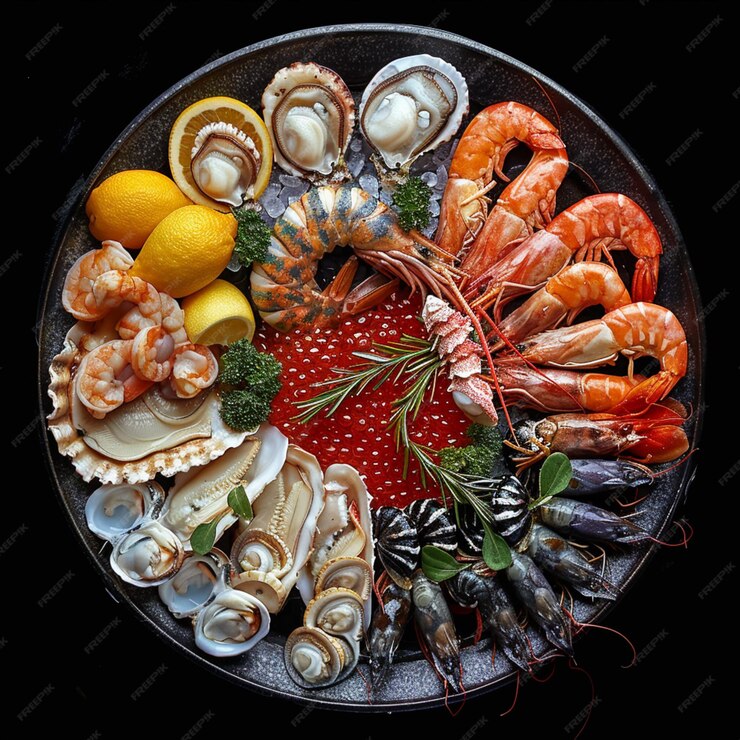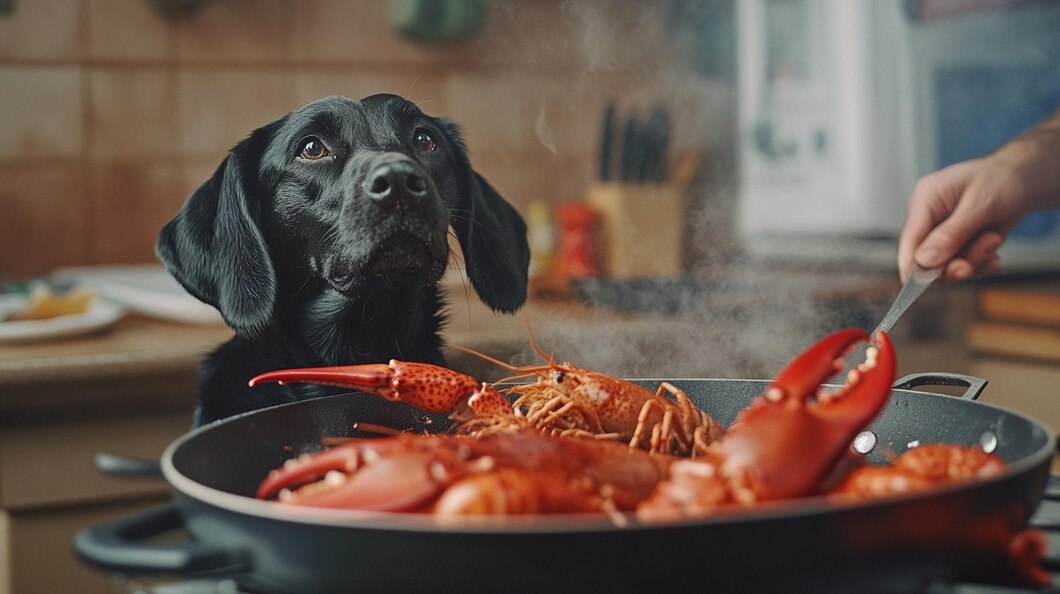Have you ever wondered if your dog can enjoy seafood delicacies like shrimp? Many pet owners have the same question. Shrimp tempts not only human taste buds but also our canine companions. While sharing a bite with your furry friend might seem loving, it’s important to understand the safety and potential health implications of such treats. So, can dogs eat shrimp?
This guide explores the nutritional benefits of shrimp for dogs, potential risks, how to prepare shrimp safely, and some alternatives for a balanced diet.
Can Dogs Eat Shrimps?

Yes, dogs can enjoy shrimp as a nutritious delight, but it comes with risks. Ensure it’s properly cooked, deveined, and given in moderation to avoid potential health issues for your pet.
Nutritional Benefits
Despite being low in calories, shrimp contains many nutrients, including iodine and antioxidants, that may offer health benefits. But it is high in cholesterol.
1. Phosphorus
Shrimp is a food with a high phosphorus-to-protein ratio but it is also a source of lean protein. Phosphorus is important for dogs in promoting the growth of healthy bones, strong teeth, and a well-balanced metabolism.
2. Antioxidants
Antioxidants are essential for human and pet health and can significantly reduce the risk of certain diseases. Shrimp is full of healthy antioxidants that help protect the body from free radicals, molecules linked to conditions like heart disease, cancer, and liver disease.
3. Omega-3 Fatty Acids
Another essential nutrient found in shrimp is omega-3 fatty acids. These promote heart and brain health in humans and dogs alike, and pups with enough omega-3s in their pet food have healthy skin and coats with less dandruff. Dogs with sensitive skin or skin conditions can benefit greatly from a diet rich in omega-3s.
Health Benefits For Dogs
Can dogs eat cooked shrimp? The answer is a complicated yes because how you prepare them matters. Let’s start by discussing some health benefits your pet may gain from eating shrimp. Shrimp are
- Low in fat
- Low in calories
- Low in carbohydrates
- Excellent source of vitamin B12
- Excellent source of niacin—also known as Vitamin B3
- Excellent source of phosphorus
- High in omega-3 fatty acids
- High in protein
Keep in mind, however, that shrimp are also high in cholesterol and should, therefore, only be offered occasionally as a treat. Overdoing it can lead to gastrointestinal upset, heightened cholesterol levels and other potential health problems. Treats, as a category, should make up no more than 10 per cent of your pet’s daily caloric intake.
Potential Risks and Side Effects
Though shrimp offers many benefits, there are risks if not prepared or served properly.
1. Allergic Reactions
Some dogs may be allergic to shellfish, leading to symptoms like itching, swelling, and digestive discomfort. Always introduce shrimp gradually to observe any adverse reactions.
2. High Cholesterol
While shrimp is low in fat, it has a relatively high cholesterol content, which may not be suitable for dogs prone to obesity or heart issues.
3. Digestive Issues
Improperly prepared shrimp, especially fried or seasoned shrimp, can upset a dog’s stomach, leading to vomiting, diarrhoea, or pancreatitis.
How to Safely Prepare Shrimp for Dogs

For dogs to enjoy shrimp safely, it’s essential to prepare it correctly.
Can Dogs Eat Raw Shrimp?
Raw shrimp is a potential carrier of harmful bacteria like Salmonella, which can cause infections. Always cook shrimp thoroughly before offering it to your dog.
1. Proper Cooking Methods
- Boil or steam shrimp without any oil or butter.
- Avoid frying shrimp, this can introduce unnecessary fats and oils into your dog’s diet.
2. Avoid Harmful Seasonings
Shrimp seasoned with garlic, onions, or excessive salt should never be given to dogs, as these ingredients are toxic.
3. Serving Sizes
Depending on the dog’s size, serve small shrimp (1-2 pieces for small dogs and 3-4 pieces for larger breeds). Keep shrimp as an occasional treat rather than a regular part of their diet.
How much shrimp can a dog eat?
Any treats you feed your dog should only make up 10% of their diet. The other 90% should come from a well-balanced dog food diet. And yes, this still applies to healthy treats like shrimp.
Check out the guidelines below for safe shrimp feeding portions based on your dog’s weight and breed size.
1. Extra-small dog (2–20 pounds) = 1/2 medium shrimp
Examples: Yorkies, Chihuahuas, Pomeranians, Pugs, Shih Tzus
2. Small dog (21–30 pounds) = one medium shrimp
Examples: Basenjis, Beagles, Miniature Australian Shepherds
3. Medium dog (31–50 pounds) = two medium shrimp
Examples: Basset Hounds, Border Collies, Australian Cattle Dogs, Siberian Huskies
4. Large dog (51–90 pounds) = three medium shrimp
Examples: Pit Bulls, German Shepherds, Labrador Retrievers, Australian Shepherds
5. Extra-large dog (91+ pounds) = up to four medium shrimp
Examples: Newfoundlands, Bernese Mountain Dogs, St. Bernards, Great Pyrenees
Can dogs eat shrimps with shells?

1. Choking hazard
Shrimp shells can be a choking hazard, especially for small dogs. You can cut the shrimp into smaller pieces if your dog is prone to gulping food.
2. Intestinal blockage
Shrimp shells can cause intestinal blockages.
3. Pathogens
Raw or uncooked shellfish can contain harmful pathogens that can make your dog sick.
4. Shellfish poisoning
If shrimp isn’t cooked properly, it can contain bacteria that can cause shellfish poisoning in your dog
If your dog eats raw or seasoned shrimp, you should contact your vet as soon as possible. Your vet can advise you on whether it’s an emergency and what to do next.
Shrimp is high in cholesterol and sodium, so it should be given to dogs in moderation. Human food and snacks should make up 10% or less of a dog’s diet
Alternatives to Shrimp for Dog Treats

If you successfully feed your dog shrimp, pet owners might be inclined to add other types of seafood to their dog’s diet! These include.
1. Mussels
Another rich source of omega-3 fatty acids, minerals, vitamins, amino acids, and antioxidants.
2. Oysters
Full of vitamin B12, protein, iron, zinc, calcium, phosphorus, and selenium.
3. Wild Salmon
Packed with omega-3 fatty acids and vitamin D. An excellent source of protein, and rich in minerals like magnesium, potassium, and iron.
4. Sardines
A good source of omega-3 fatty acids, protein, calcium, selenium, and niacin.
5. Crab (de-shelled)
It is a great lean protein that contains vitamin B12 for brain function, omega-3 fatty acids, and amino acids to support your dog’s skin, nails, and muscle tissue.
6. Lobster (de-shelled)
Dense with nutrients like protein, zinc, and omega-3 fatty acids.
Conclusion
Shrimp can be a nutritious dog treat when appropriately prepared and served in moderation. Rich in protein, omega-3 fatty acids, and antioxidants, shrimp supports healthy skin, coat, and overall well-being. However, due to its high cholesterol content, it should only be an occasional treat. Always cook shrimp thoroughly, avoid raw shrimp and shells, and steer clear of harmful seasonings to prevent potential health issues.
For variety in your dog’s diet, consider safe seafood alternatives like mussels, salmon, or sardines, which offer similar nutritional benefits. Keep portion sizes in check and consult your vet before introducing new foods. A balanced approach ensures your dog reaps the health benefits while avoiding unnecessary risks.








